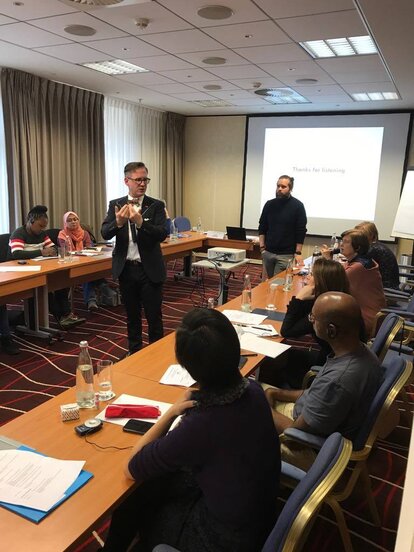IAF Malaysia
Foundation of Open Society: Individual Self-Determination and Tolerance
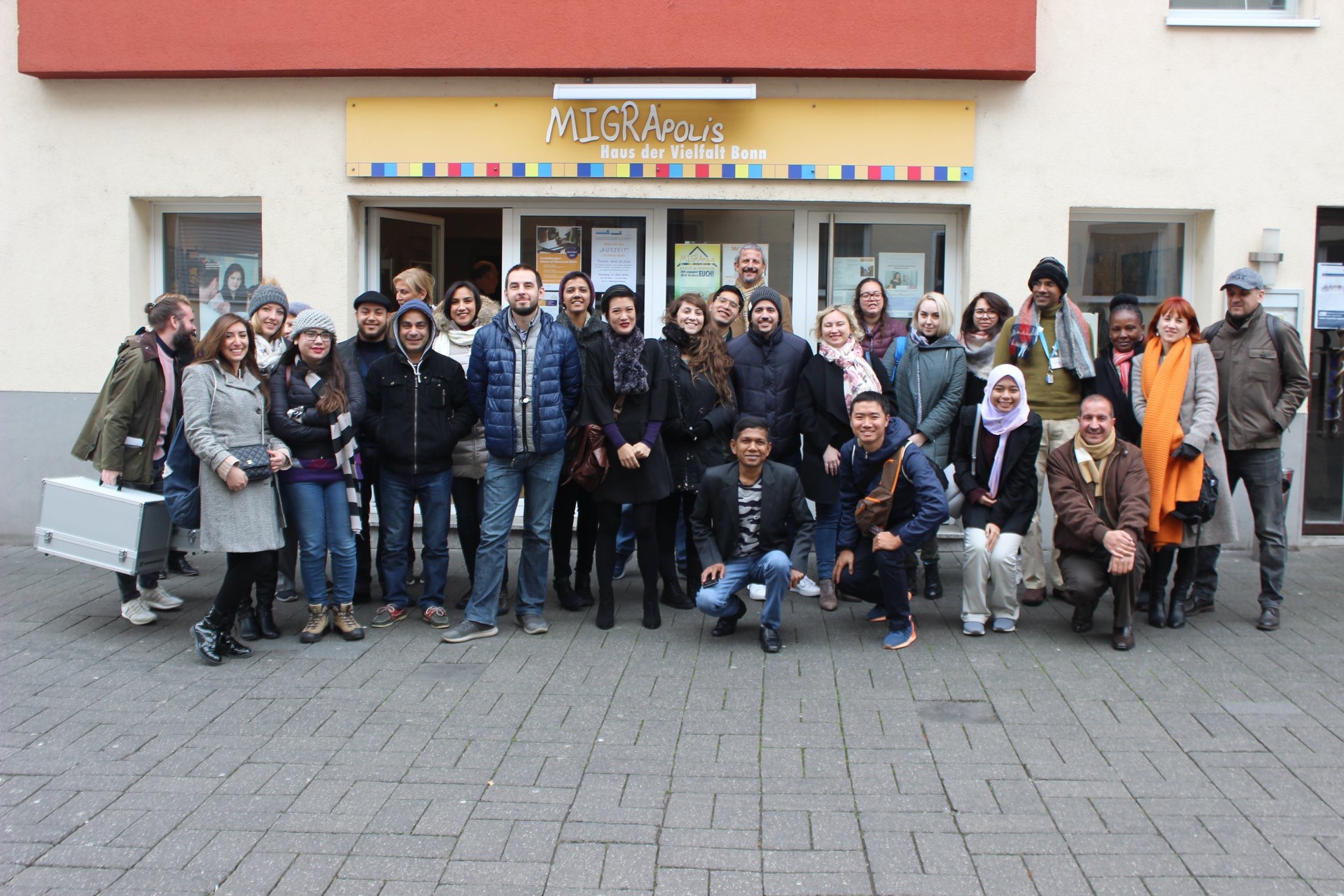
This seminar is one of Fredrich Naumann Foundation’s (FNF) initiatives in highlighting open society discussions by gathering 26 participants (including me) of diverse backgrounds from around the world. A 12 days seminar – 8 days at Theodor-Heuss-Akademie, Gummersbach, 1 day excursion to Cologne and 4 days excursion to Dresden – has opened a lot of points about this subject. The main purpose of the seminar is to provide guidelines on how to create a society that is politically, economically and socially open based on fundamental principles of liberalism.
Knowing the principle of an ideology is compulsory in learning something because by knowing the principle we can use it as lenses to see social phenomena and can apply it to local context. This is what our facilitators Sven Gerst have done, which he discussed the concept of open society deeply by discussing fundamental principles in liberalism as well as the political, economic and cultural dimensions of an open society throughout the seminar. The input from the participants, about the real-life situation that occurred in their respective countries, has also become eye opener to me that openness of society will not come easily without real understanding of the principles of liberalism.
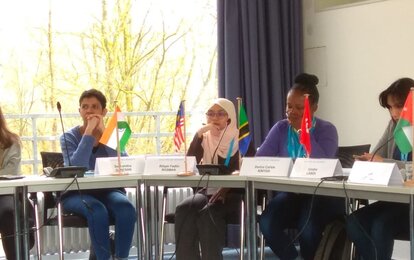
The world is growing globally and the community is no longer exist with just one group. Individual economy sustainability and self-survival have become the main reason for someone to leave his home country and seek refuge in a country he feels safe. As is known, the two main principles of liberalism are tolerance and peace. The security and peace of an open society is essential in ensuring one’s independence and individualism. Therefore, open society is necessary in accepting individual differences. But what kind of open society is still in question and that is what we still need to talk today.
This concept of tolerance has been discussed in depth by Dr. Bican Sahin where he explained to us there are three approaches to reaching the principle of tolerance in open society - assimilation, multicultural citizenship and tolerance - which I think is a very important input to life in a plural society. The world is growing globally and the community is no longer exist with just one group. Individual economy sustainability and self-survival have become the main reason for someone to leave his home country or seek refuge in a country he feels safe. As is known, the two main principles of liberalism are tolerance and peace. The freedom and peace of an open society is essential in ensuring one’s liberty and individualism. Therefore, open society is necessary in accepting individual differences. But what kind of open society in one’s country is still in question and that is what we still need to talk to today.
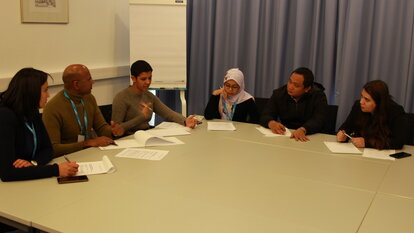
When visiting the Buchenwald Memorial - Nazi Concentration Camp, my feelings mixed up - sad, angry, disheartened - where I saw evidence of human cruelty against other humans. All the atrocities were made because they felt superior from the person who are different from their group. The same feeling I felt when we were taken to Stasi-Records-Archive in Dresden where we took a closer look at the evidence of mass surveillance from a closed administration to almost every living person there. Entering personal affairs of individuals on the basis of maintaining power is disgusting and should not happen anywhere.
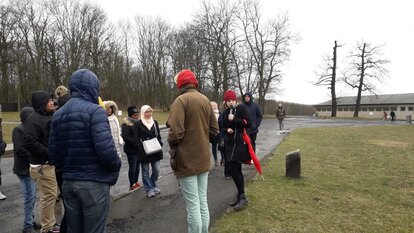
In Dresden, we met with Helmut Merzner, a Member of the Board of the Federal LGBTQI Association of Germany where we have discussed how the voices of the minorities need to be heard and what approach that recognizes the existence of such groups. The next day, we were brought to meet Maria Noth, the Commercial Director of the Dresden Frauenkirche Foundation. Here I learn how a religious institution needs to act as agent of unity and tolerance. Then, we also met Philipp Hartewig, the Former National Chairman of Jungliberalen Aktion Saxony, who is also a candidate in the state election for the FDP in 2019. His experiences with youth engagement in politics has helped me to understand the diversity of youth in Germany and this help me to strengthen youth political engagement in Malaysia. Before the day ended, we went to city tour guided by Robert Noack and before the day ended, I had witnessed the PEGIDA (Patriotic Europeans Against the Islamization of the Occident) Demonstrations. Although I do not understand their chanting, I can see how the exclusiveness of an ideology have can make us more powerful than others. Our excursion ends with a visit to Weimar, a small town with great history. With the guidance of Hans-Peter Senn and Lutz Rummel, we found out that many famous intellectuals lived here, including Goethe and Schiller. Hitler also chose Weimar as Nazi party's first national congress. It is like an irony situation, the city that has given birth to thinkers, is also a place of cruelty.
This seminar really gives me the opportunity to learn, discover and explore new things in understanding the foundation of open society and how to shape it. It also deepened my understanding of the principles of liberalism and how to apply it to my local context. Thank you IAF for organizing this insightful seminar, and special thank you for FNF and Institute for Leadership and Development Studies (LEAD) for this golden opportunity.
